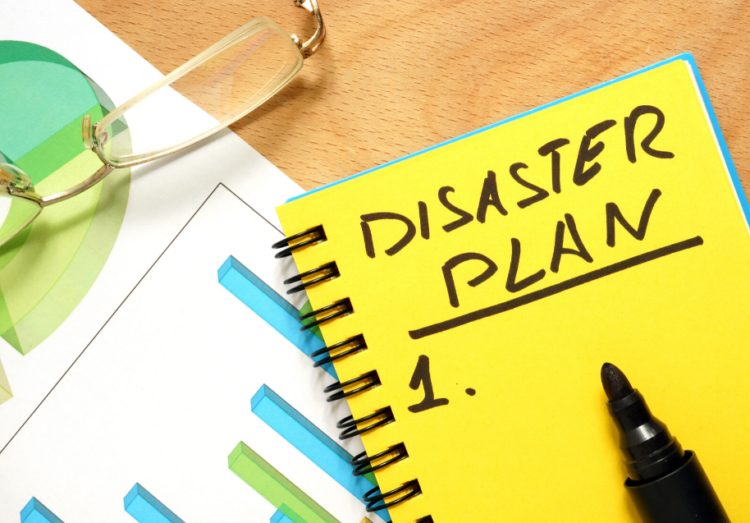The last thing to do during a crisis is to remain silent and wait for it to simply disappear. People love conflicts and affairs. Therefore, they won’t let you get out of it easily. So, if the disaster has already occurred – you need to know what to do so you can handle it.
The Public Simply Loves Affairs

In the old days, it was relatively simple to control several media: print, television and radio. However, the development of the internet and social networks has brought a new dynamic to the relationship between the company and the public. The most undesirable part of a PR job is certainly dealing with a crisis. In most cases, it can be recognized and prevented on time – but when the slogan “it always happens to someone else” is used, a disaster is imminent.
PR Crisis In The Digital Age – A Way To A Total Disaster
Crisis communication in the era of social networks and smartphones has become more complex. The former golden rule of responding within 24 hours in crisis communication is now the 15-minute rule. Today, utterly irrelevant events only go viral in just a few minutes. Their consequences can jeopardize or bring the brand reputation to the brink of collapse.
PR Team Skills Are Essential

Every day, crises of all kinds affect many companies – regardless of their size, success, tradition or number of employees. Then the skills of the company’s PR team and the incident and crisis management are brought to the fore. They will use the ability to utilize both – traditional communication channels and the digital sphere. However, that can often be inhabited by gossip and speculation to a much greater extent than – facts.
Hire A Professional PR Agency
In the digital age, it is much easier to outsource this work to some reputable public relations agencies, such as theideassuite.com.au or similar. Certainly, before embarking on such a business – you need to see what other companies’ experiences with that agency are. Also, you should check the references and the staff of a particular PR company. Most companies that are actively online – take great care of their reputation. Being open to the general public can only give you extra security because such agencies are not ready to endanger their business.
Prepare And Plan Before PR Disaster Occurs

Brands no longer have the luxury of considering a response in the event of a crisis. Social networks, portals and online platforms through which a large number of pages are involved – accelerate the spread and increase the visibility of the topic. They do not wait but usually intensify the “fire”. This is why the new era of crises is characterized by speed and intensity. And successful communication in a crisis cannot be realized without preparation and planning – before the crisis. Here are some ways that can help you deal with PR disasters.
1. Prevention Is The Main Task In Public Relations
“Crisis” is a word that refers to a sudden, unpredictable situation – and when said out loud, it creates panic. However, in a society where information is one click away from us – a crisis is spreading at the speed we cannot control. Therefore, the company’s quick response should by no means imply an instant panic. The speed of flow and ease of access to information is in favor of the PR team as well, because, by continuous monitoring of the Internet community, the first signs of a crisis can be identified and prevented from escalating in time. Analytics integrated into social networks, Google Analytics, Google Trends, Google Alerts, and many other tools for measuring online presence can help greatly.
2. Predicting Disaster Situations

Depending on the industry, each company can identify potentially critical situations. For example, in the case of retail – there will certainly be some customers who will, at some point, share their dissatisfaction on social networks. In the food industry, there is a presence of certain harmful substances in the products, construction companies often face accusations after injuries at work, and there are also rumors that are being marketed by competitors. Issues that may arise within the company itself, such as employee dissatisfaction or mistakes made by management, should also be considered.
3. Follow Key Steps In Solving A PR Disaster
In the case of a PR disaster, it is necessary to resolve the situation quickly and smoothly. But how to manage that? By following the basic PR rules:
- Make a plan of action even before anything has happened.
- Identify the first signs of a PR disaster in time.
- If possible, resolve the crisis before it reaches the media.
But when we don’t take prevention seriously enough, we can really make a big deal out of nothing. In a crisis, it is necessary to show the care and understanding of the company by answering 3 key questions:
- What happened?
- What is done?
- How will the company reduce the damage caused?
4. Stay Informed And Handle The Facts

In order to cope with the PR disaster, it is important to be well informed. If one does not want to say something – one should be aware that the public will probably find out everything. Therefore, it is precisely the moments of crisis that were created to be completely honest.
5. Choose Spokesperson From The Company Or Your PR Team
The spokesperson should already be a well-known person in the company – so that all employees, as well as the public, are aware that the message sent is serious. This person should also be able to answer to some difficult and awkward questions in front of the camera. An additional tip for dealing with tricky questions is to follow the ABC rule – answer, bridge, control.
6. Coordinate Your Team

How many people do you have on the team? Does everyone know who should be answering journalists’ calls? Is everyone informed that all calls are forwarded to one person? Are they aware that a journalist may not identify himself as a journalist? One has to make sure that the team is ready and that the phones are answered by an expert from the PR team – otherwise journalists can take something out of context.
7. Stay Calm
While answering questions during the PR crises – it is essential to remain calm. A statement should be prepared in advance and such a statement should be offered to whoever contacts you. One should know that there is no unofficial question in which journalists don’t want to get some additional information that they can misuse.
8. Know Who Your Allies Are
In times of crisis, other participants in the environment must not be neglected. In addition to the media, you need to deal with other audiences including the general public, staff, and consumers. Internal communication is as important as external communication.
9. Stay Consistent
The company staff should be briefed on the whole situation, especially if and when the reporters arrive. Any type of communication with journalists should be limited to a maximum of two people to ensure the consistency of the message.
10. Arrange Everything In Time – That Is, In Advance
All of the above has to be an integral part of a crisis communication plan, which must be ready long before it is presented. This is much easier than constantly being pressured by a boss, a journalist and others who want to know what’s going on with your business.
 Hi Boox Popular Magazine 2024
Hi Boox Popular Magazine 2024



